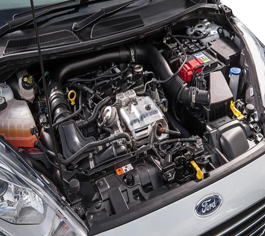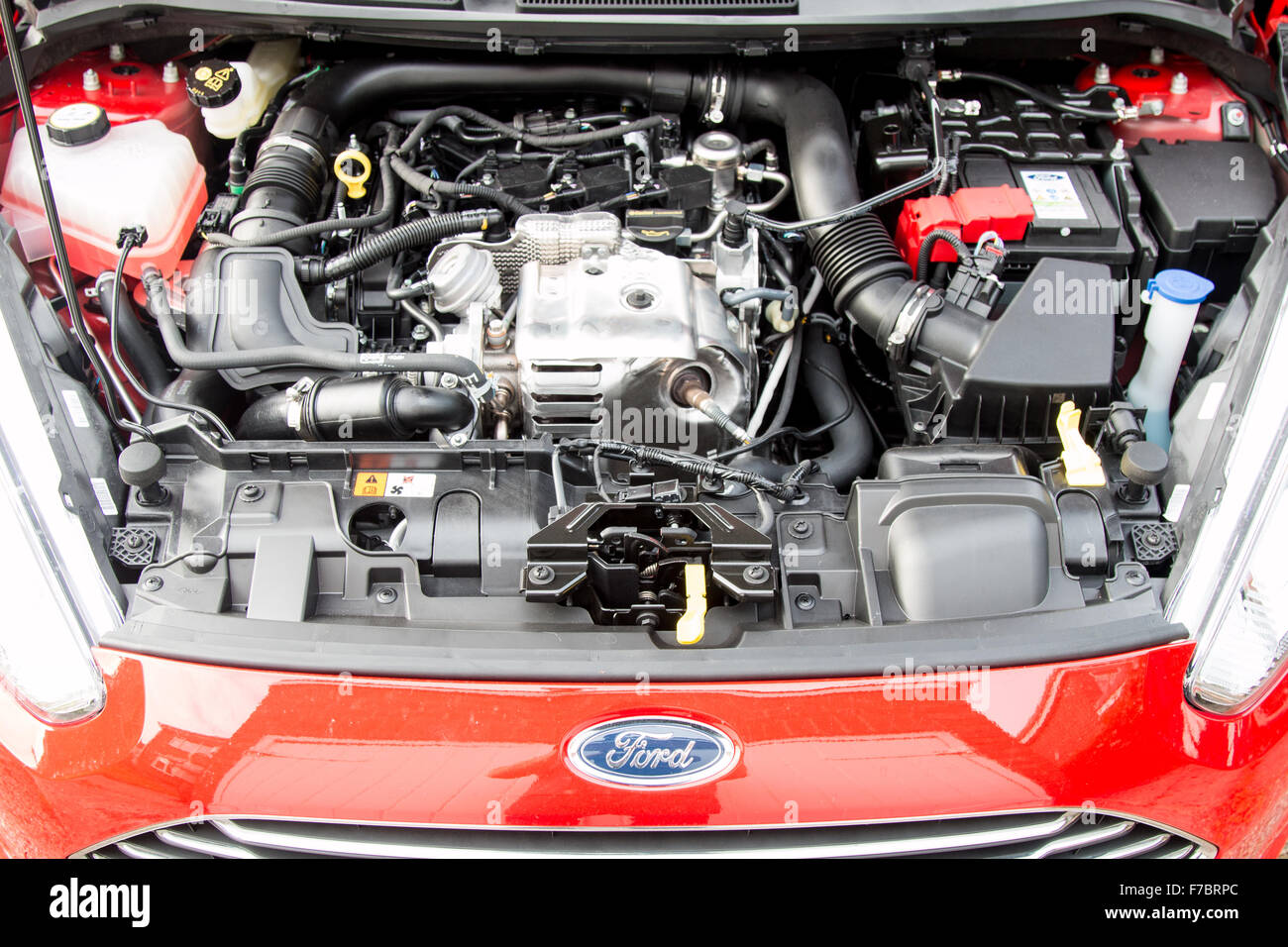Get the Most Out of Your Ford Fiesta Engine with Proper Care
Get the Most Out of Your Ford Fiesta Engine with Proper Care
Blog Article
The Future of Engines: Innovations Driving Lasting Power Solutions
As the automobile market browses the important transition in the direction of sustainability, the future of engines is increasingly defined by groundbreaking developments. Electric engine innovations, together with appealing growths in hydrogen gas cells and biofuels, are improving the landscape of power remedies.
Electric Engine Developments
The evolution of electrical engine advancements indicates an essential shift in the automobile and aerospace markets, driven by the urgent need for sustainable options to nonrenewable fuel sources. This change is identified by significant innovations in battery technology, power electronics, and electrical motor layout, which collectively enhance the effectiveness and performance of electric engines.
Current advancements have caused the production of lighter, extra energy-dense batteries, such as lithium-silicon and solid-state batteries, which assure longer ranges and much shorter billing times. Furthermore, enhancements in electrical motor performance, such as using long-term magnets and advanced cooling down systems, enable electric engines to run effectively under varying problems. These enhancements not only boost vehicle performance yet likewise contribute to a decrease in general power intake.
Additionally, the combination of sophisticated software formulas has actually enhanced power administration in electric automobiles, enabling regenerative stopping and predictive billing approaches. As manufacturers significantly embrace electrical propulsion, the aerospace and automobile sectors are observing a paradigm change towards greener technologies. This advancement not only fulfills regulative needs however also straightens with consumer preferences for eco-friendly transport solutions, strengthening electrical engines as a foundation of future sustainable flexibility.
Innovations in Biofuels
As the aerospace and auto markets increasingly focus on lasting energy sources, improvements in biofuels become a corresponding solution to electrical engines. Biofuels, derived from organic materials such as plants, waste, and algae, present an ingenious method for lowering greenhouse gas emissions and reliance on nonrenewable fuel sources.
Recent study has concentrated on enhancing the efficiency and sustainability of biofuel manufacturing. Second-generation biofuels make use of non-food feedstocks, reducing competition with food supply and minimizing environmental impact. Additionally, advancements in synthetic biology have enabled the engineering of microbes to generate biofuels extra effectively, resulting in greater returns and reduced manufacturing expenses.
In addition, the growth of drop-in biofuels permits seamless integration into existing infrastructure, enabling a smoother transition for markets commonly based on nonrenewable fuel sources. ford fiesta engine. These gas can be utilized in existing engines without modifications, promoting their fostering across various fields
Investments in biofuel modern technology, in addition to encouraging policies, are necessary to drive technology and scalability. As the international area seeks to battle environment change, biofuels offer a practical, instant solution that straightens with the overarching goal of sustainability in transport and aeronautics.
Hydrogen Fuel Cell Modern Technology
An expanding variety of researchers and companies are checking out hydrogen fuel cell modern technology as a feasible option to conventional power sources in transport and power systems. This technology transforms chemical power from hydrogen right into electrical power via an electrochemical response, with water as the only byproduct, making it an eco-friendly choice.
The core of hydrogen fuel cells is the fuel cell pile, where hydrogen molecules are split right into electrons and protons. The flow of electrons creates electrical power, while protons move via a membrane to incorporate with oxygen from the air, developing water. This process causes high effectiveness and reduced discharges, placing hydrogen fuel cells as an important player in the shift to lasting energy.
Substantial innovations have actually been made in boosting the sturdiness and performance of fuel cells, along with reducing prices through ingenious production techniques. Additionally, the growth of hydrogen production methods, such as electrolysis powered by renewable resource resources, enhances the sustainability of the overall system. As infrastructure for hydrogen refueling expands and manufacturing techniques come to be extra efficient, hydrogen fuel cell innovation holds wonderful promise for decarbonizing various markets, including durable transportation and fixed power generation.
Crossbreed Equipments and Their Influence
Hybrid systems represent a significant evolution in sustainable visit engine innovation, merging standard inner burning engines with electrical propulsion to enhance power effectiveness and minimize emissions (ford fiesta engine). This dual technique permits lorries to use both source of power, enabling greater flexibility in power usage and decreasing reliance on fossil gas

In enhancement to ecological benefits, hybrid systems offer customers a sensible change towards completely electric cars. They minimize range stress and anxiety by combining the convenience of fuel with the benefits of electrical propulsion, making them an eye-catching alternative for a wider audience. As producers purchase hybrid technology, the advancement of advanced battery systems and light-weight materials continues to improve efficiency. In general, hybrid systems stand for an essential action towards achieving sustainable transportation and attending to the immediate requirement for eco-friendly power services.
The Duty of AI in Engine Style
Leveraging sophisticated formulas and equipment knowing methods, the auto industry is progressively incorporating expert system (AI) right into engine design processes. AI improves the performance and effectiveness of style by evaluating huge datasets to identify optimal setups and efficiency parameters. This capability enables designers to imitate various operating conditions and anticipate engine habits under numerous circumstances, significantly lowering the moment and price related to conventional prototyping approaches.
Additionally, AI helps with the advancement of sophisticated products and combustion procedures customized for sustainability. By maximizing gas performance and decreasing discharges, AI-driven designs align with global initiatives aimed at lowering the carbon impact of automotive engines. Artificial intelligence algorithms can likewise anticipate maintenance requirements, resulting in improved reliability and long life of engine parts.
Moreover, AI is instrumental in the assimilation of electrification modern technologies, such as crossbreed systems, navigate to this site where it can enhance battery administration and energy recovery procedures. As the market moves towards even more sustainable power solutions, the role of AI in engine design comes to be progressively important, driving development and enhancing the performance of future engines. Inevitably, the cooperation in between AI and engine style declares a new period of smarter, cleaner, and a lot more efficient automobile innovations.

Verdict
To conclude, the future of engines is being formed by a merging of innovative innovations that prioritize sustainability. Electric engine improvements, biofuel growths, hydrogen gas cells, and hybrid systems jointly contribute to a substantial decrease in emissions and ecological impact. In addition, the assimilation of artificial intelligence in engine style improves effectiveness and performance. These transformative options highlight a commitment to creating a cleaner, extra lasting auto landscape, inevitably profiting both society and the atmosphere.
Electric engine advancements, together with promising developments in hydrogen gas cells and biofuels, are improving the landscape of power options. Furthermore, enhancements in electric motor performance, such as the usage of irreversible magnets and advanced cooling published here down systems, make it possible for electrical engines to operate effectively under differing conditions. By optimizing fuel performance and decreasing discharges, AI-driven designs straighten with global initiatives intended at decreasing the carbon impact of auto engines. As the market relocates in the direction of more lasting power services, the duty of AI in engine style becomes progressively important, driving technology and improving the performance of future engines. Electric engine improvements, biofuel developments, hydrogen gas cells, and hybrid systems jointly contribute to a considerable reduction in discharges and environmental impact.
Report this page